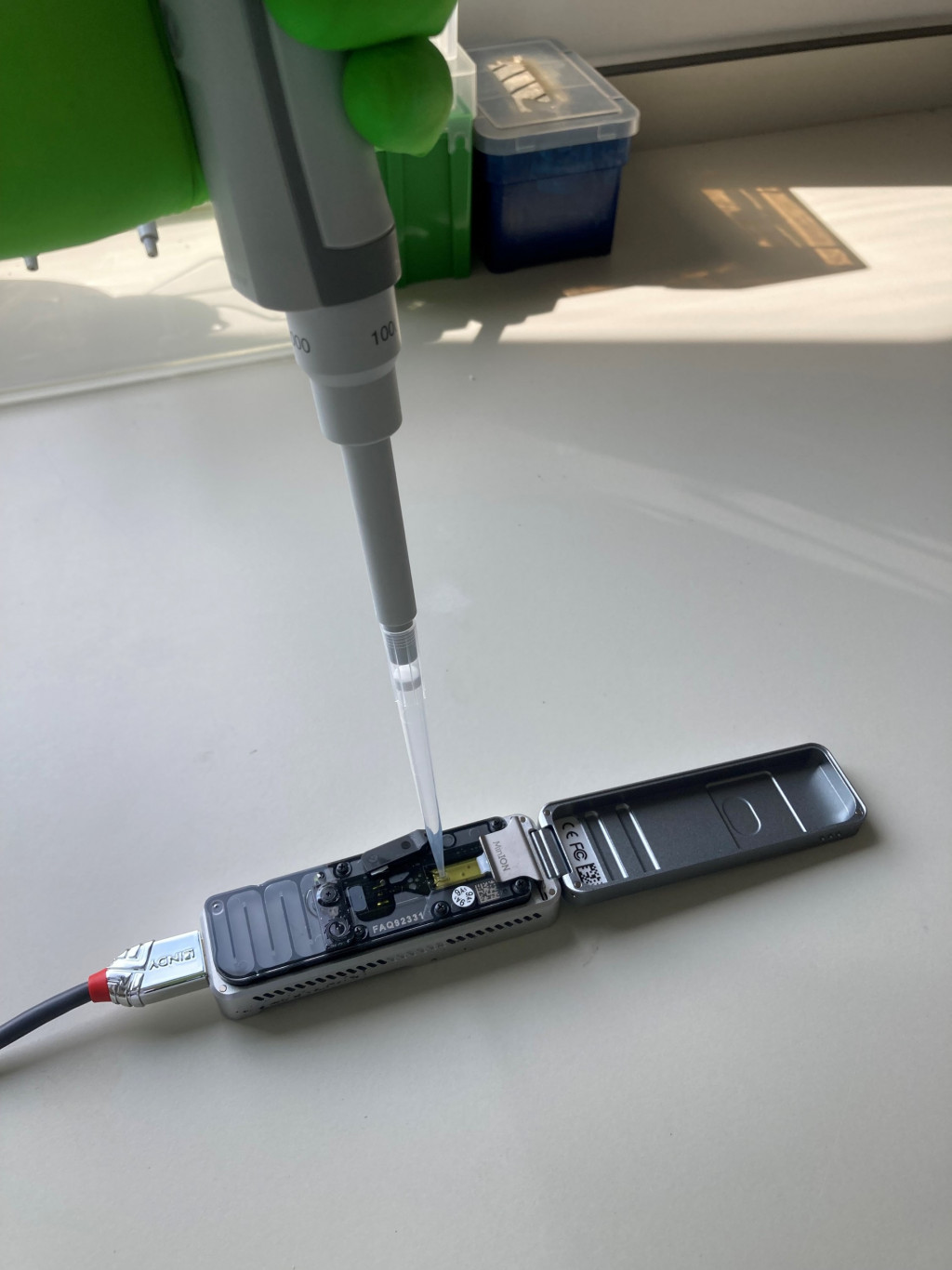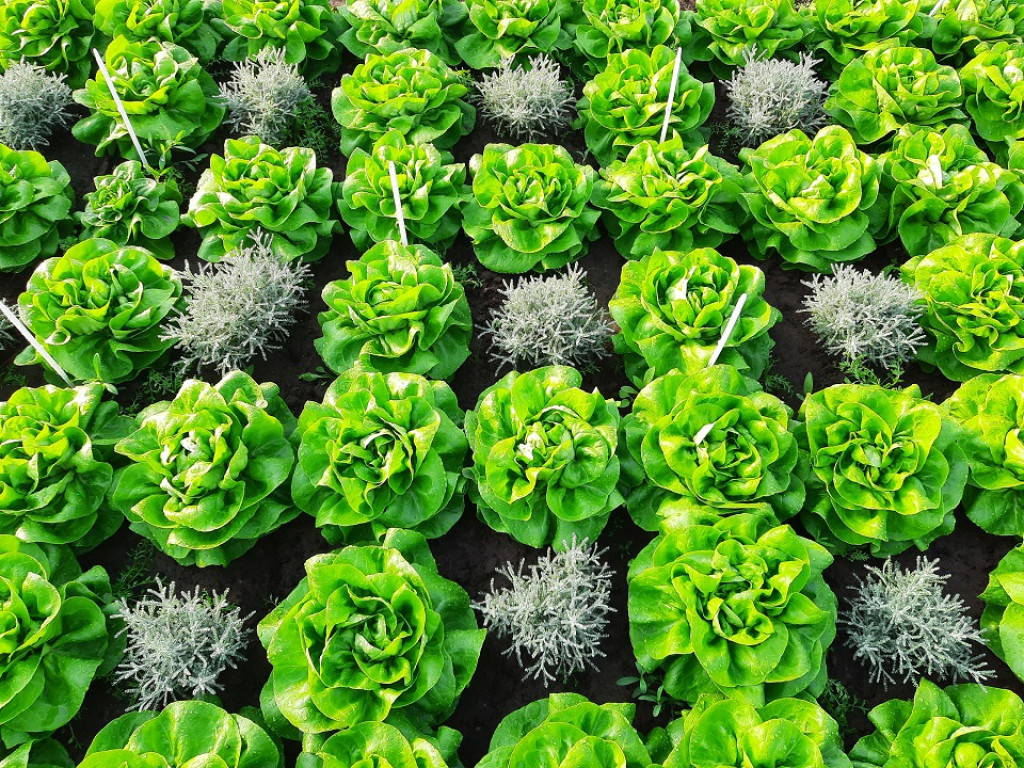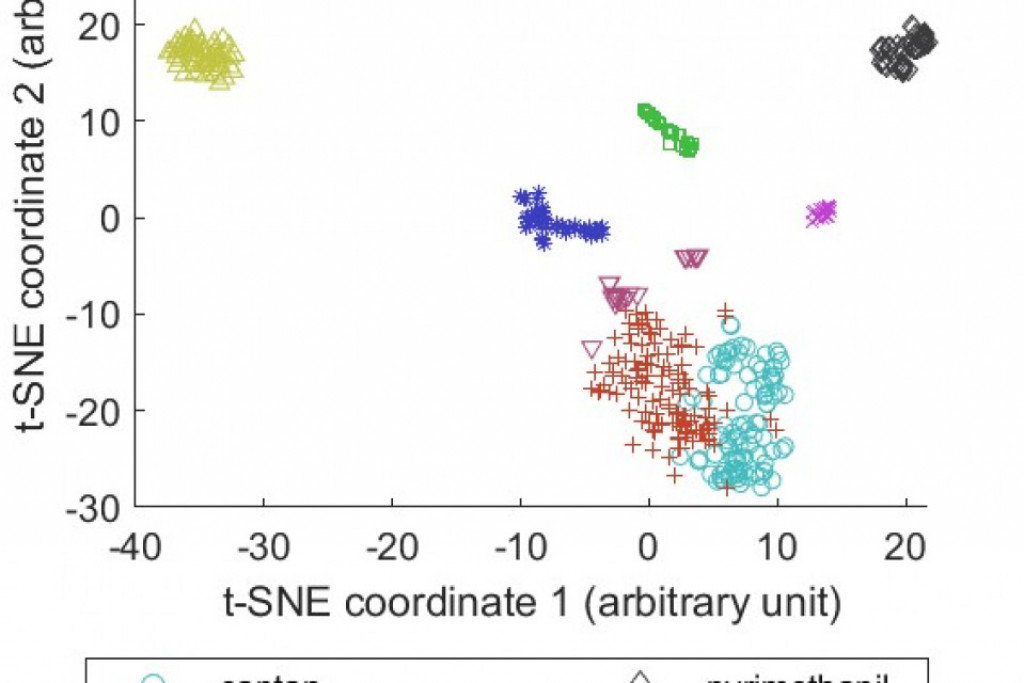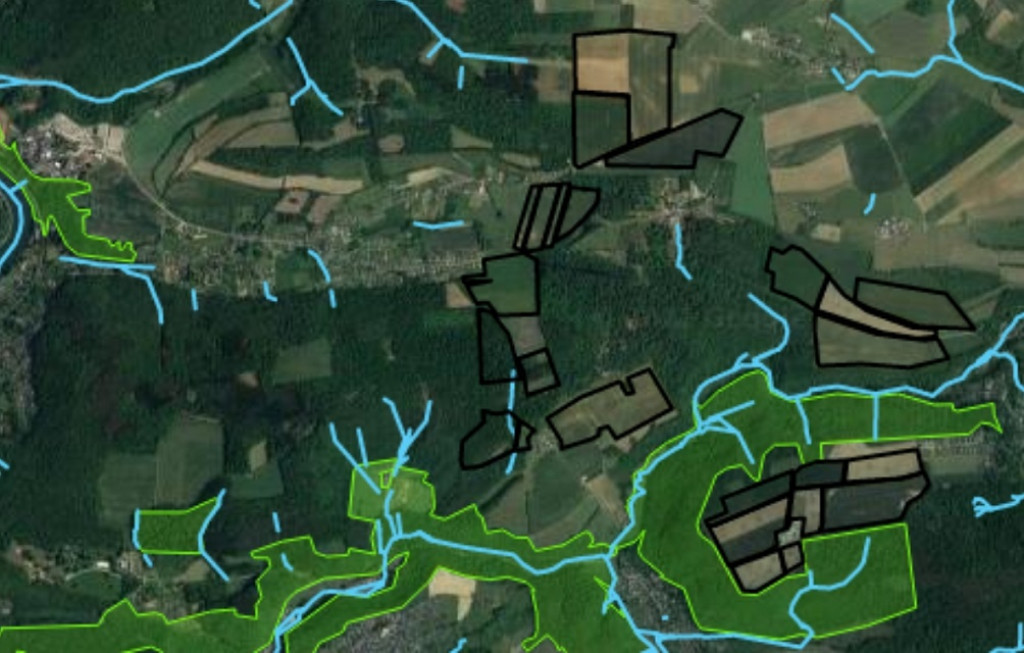The InnovEau project, launched in 2019, brings together CRA-W and three partners from the agricultural and drinking water sectors (Apligeer, SWDE and CILE). It aims to reduce the use of plant protection products, particularly in the Hesbaye chalk area, one of Belgium's main sources of drinking water.
Spot-spraying involves applying herbicide exclusively to the weeds. The trials were carried out using 3 sprayers fitted with on-board sensors to detect and map weeds in the plots. These precision sprayers use artificial intelligence to differentiate between weeds and crops. Each nozzle is operated independently and only surfaces colonised by weeds are sprayed, saving product and reducing environmental damage.
During trials, weed-counting zones are defined and the GPS coordinates of each weed are recorded so that the solutions tested can be validated by calculating theoretical spraying, i.e. the ideal situation where 100% of weeds are sprayed without excess product. Ratings are also carried out to quantify the efficiency of the spraying.
In 2022, the final year of the project, tests were carried out on 5 crops: beet, corn, beans, stubble and meadows for the detection of Rumex. For theoretical gains of 17% to 95% less sprayed area compared to blanket spraying, real savings of between 3% and 67% of sprayed area were achieved for on-board sensors, with between 13% and 62% of weeds detected depending on the crop, compared to 98% efficiency for blanket spraying.
For the other precision sprayers tested, gains in terms of PPP quantity ranged from 74% to 97%, with results ranging from 46% to 92% of weeds destroyed.
Further trials should be carried out with precision sprayers to confirm the results obtained and to test new crops. Although current technologies still need to be improved to increase their accuracy, the results are encouraging for deployment in Wallonia's future agricultural world, and could ultimately lead to significant reductions in the use of phytosanitary products, resulting in better protection of water resources.
Financing: Public Water Management Company (SPGE)
Illustration caption: Precision sprayer












